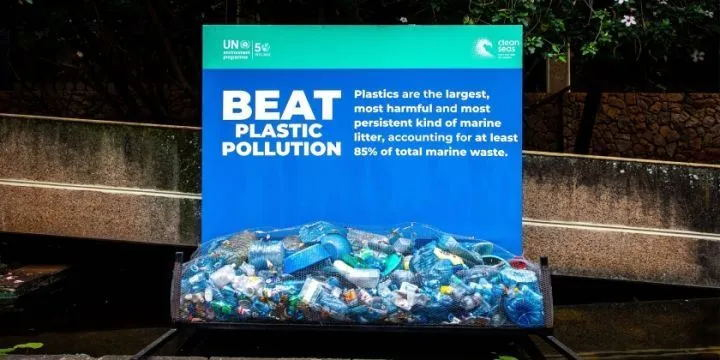
Plastic pollution has always been a big problem puzzling the world. On March 2, 2022, national leaders, ministers of the Ministry of Environment and representatives of other departments from 175 countries and regions passed a landmark resolution on ending plastic pollution at the resumed fifth United Nations Environment Conference (UNEA-5.2)!
The meeting reached an internationally legally binding agreement by 2024. The agreement aims to end plastic pollution, involving the full life cycle of plastics such as production, design and disposal, and reduce the leakage and pollution of plastics in the global ecosystem (including the marine environment). Once completed, the agreement will be the most important international multilateral environmental agreement since the Paris Agreement.
Current situation of plastic pollution
Plastics are a kind of organic synthetic polymer materials with a wide range of uses, involving chemical, petroleum, construction, packaging, transportation and many other industries. Plastic products are difficult to degrade for a long time. Discarding them at will will lead to environmental pollution such as soil, water and air, lead to animal death due to ingestion, damage human reproductive capacity, hormones, metabolism and neural activities, and cause long-term and deep-seated ecological problems such as climate warming.
The harm of plastic pollution has been well known by the public, but the actions taken at present are still insufficient to reverse or prevent the plastic pollution crisis. According to the report of the United Nations Environment Programme (UNEP) on October 21, 2021, the global annual plastic output is about 400 million tons, of which only 21% of the production plastics are properly treated (12% are incinerated, 9% are recycled), and the rest of the garbage is discarded at will. It is worth noting that plastic pollution has also caused certain harm to marine and aquatic organisms. Plastic emissions in the ocean have reached 11 million tons/year. UNEP predicts that if not controlled, this number will increase nearly twice (to 29 million tons/year) by 2040. Therefore, it is urgent to take measures to end plastic pollution.
Draft resolution "Ending plastic pollution"
The draft resolution "Ending Plastic Pollution: Towards an International Legally Binding Instrument" (hereinafter referred to as the "Instrument") was adopted at the Conference, with the main contents as follows:
1. Establishment of the Intergovernmental Negotiating Committee (INC)
INC will start work in the second half of 2022, and plans to complete the Instrument by the end of 2024.
2. The Instrument could include mandatory and voluntary approaches:
● Establish the objectives of the Instrument;
● Promote sustainable production and consumption of plastics, including product design and environmentally sound waste management, including through resource efficiency and circular economy approaches;
● Promote national and international cooperative measures to reduce plastic pollution in the marine environment, including existing plastic pollution;
● Develop, implement and update country driven action plans to promote the achievement of the objectives of the Instrument;
● Promote national action plans aimed at preventing, reducing and eliminating plastic pollution, and support regional and international cooperation;
● Provision of national reports, as appropriate;
● Regularly evaluate the implementation progress of the Instrument;
● Regularly assess the effectiveness of the Instrument in achieving its objectives;
● Provide scientific and socio-economic assessments related to plastic contamination;
● Increase plastic pollution knowledge through awareness raising, education and information exchange;
● Promote cooperation and coordination with relevant regional and international conventions, instruments and organizations, while recognizing their respective laws and regulations, avoiding duplication and promoting complementarity of actions;
● Encourage all stakeholders, including the private sector, to take action to promote cooperation at the global, regional, national and local levels;
● Initiate a multi stakeholder action agenda;
● Clarify the arrangements for capacity-building and technical support, as well as for technology transfer and financial assistance on mutually agreed terms, recognizing that the effective implementation of certain legal obligations of the Instrument depends on access to capacity-building, technology and adequate financial support;
● Promote research and development of sustainable, affordable, innovative and cost-effective methods;
● Address compliance issues.
